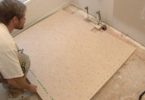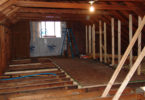Investing in real estate can be done in many forms and can require varied amounts of capitol. With the rising numbers of foreclosures hitting the market, purchasing property has never been more affordable than it is today. With lending practices becoming more stringent, more and more property investors have decided to diversify their means of income by renting out to tenants who may not be otherwise qualified to buy property through conventional means. Land contracts or owner financing may be a viable alternative to property management if done correctly.
One of the major caveats when it comes to renting out a house or multifamily unit is the need to be able to respond quickly to the possible repair needs of a property as well as to deal with other typical problems that could impede an investor’s income such as late or nonpayment of rent or property destruction. Rental properties owned by an investor may not be eligible for certain tax exemptions as well. Participation in government sponsored housing programs can guarantee a certain level of continuous income, however, there are conditions that must be fulfilled and maintained by the property owner in order to qualify for government payment.
In certain parts of the country, value for bare, unimproved land has become extremely cheap, especially in the Great Plains and in Texas. One possible benefit of owning extensive amounts of land in certain barren areas is the possibility of having the right to be compensated if oil or other exploitable resources are found on the property. With all of the talk of renewable energy sources, such as solar and wind power, one could utilize these properties to install devices in order to produce residual income from these almost unlimited sources of energy. A great deal of capitol may be required for such equipment; however, it is quite possible for an owner to lease the land for such purposes to companies willing to pay a premium.
Purchasing cheap land close to growing commercial sectors with the intention to sell the land to prospective developers may also produce great capital gains but this practice can be extremely risky without a great deal of research and the right marketing approach. Purchasing residential properties close to growing commercial areas can be a wise real estate investment. Highly trafficked areas near major thoroughfares often peak the interest of commercial and industrial sectors due to the potential such areas can provide for their business growth. If the interest of these prospective businesses is enough to bring in considerable tax revenue for the area, the local planning or zoning commission for the area could be prompted to change the land use purpose from residential to commercial or industrial, making the value of the land much higher than it was before.
Buying investment homes with the purpose of improving and selling for a profit has become one of the most popular and widely publicized ways to make money in the real estate business. With the high foreclosure rates affecting the country today, it has become more difficult for the average person to capitalize on this practice. This is primarily due to foreclosed properties which are typically being sold at a discount and in areas with a high concentration of these bank owned properties. A dramatic decrease in property values can occur in a very short amount of time, making it hard for investors to sell their own homes at considerable profit.
A keen understanding of the prospective investment property’s neighborhood values and trending will greatly help with sound decision making when purchasing the home for the sole intention of renovating it and selling for a profit. But one must take into account the time and material costs needed to bring the value of the home up enough to make a profit. Thorough inspections must be made to the property before-hand. It is also wise to check with the local government for any back taxes or liens against the property. If there any judgments or back taxes that need to be paid, the investor should ask the seller to pay for these liabilities or make concessions to cover the costs in the purchase agreement.
Some of the easiest forms of investing in a property can be done when it comes to a person’s own home. Improving your own property by way of updating the exterior or adding a second bathroom can greatly increase the value of the home as well as contribute their neighborhood’s value. Energy efficient additions such as installing new windows and doors can yield generous tax credits and lower utility bills for years to come.
Related Posts







